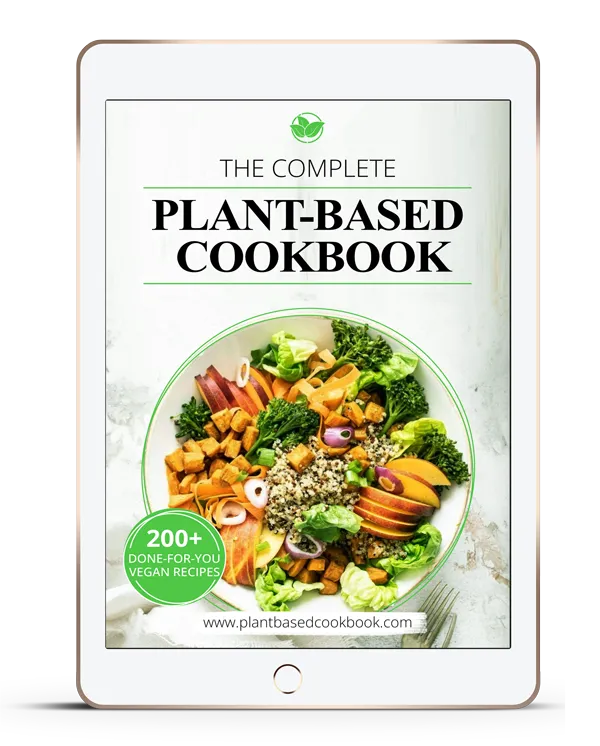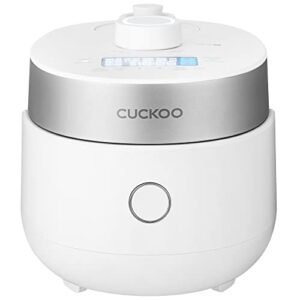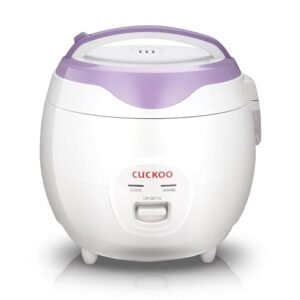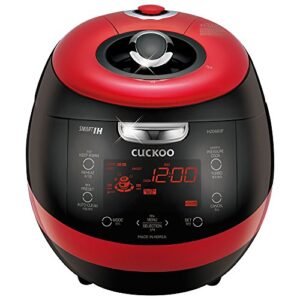Cooking pasta is a simple task that almost everyone can do, but when it comes to the method of cooking, there are several options available. Two of the most popular methods are cooking pasta in a rice cooker or on a stovetop. While both methods produce tasty pasta, they differ in several aspects, such as convenience, speed, and texture. In this article, we will compare the two methods and determine which one is better.
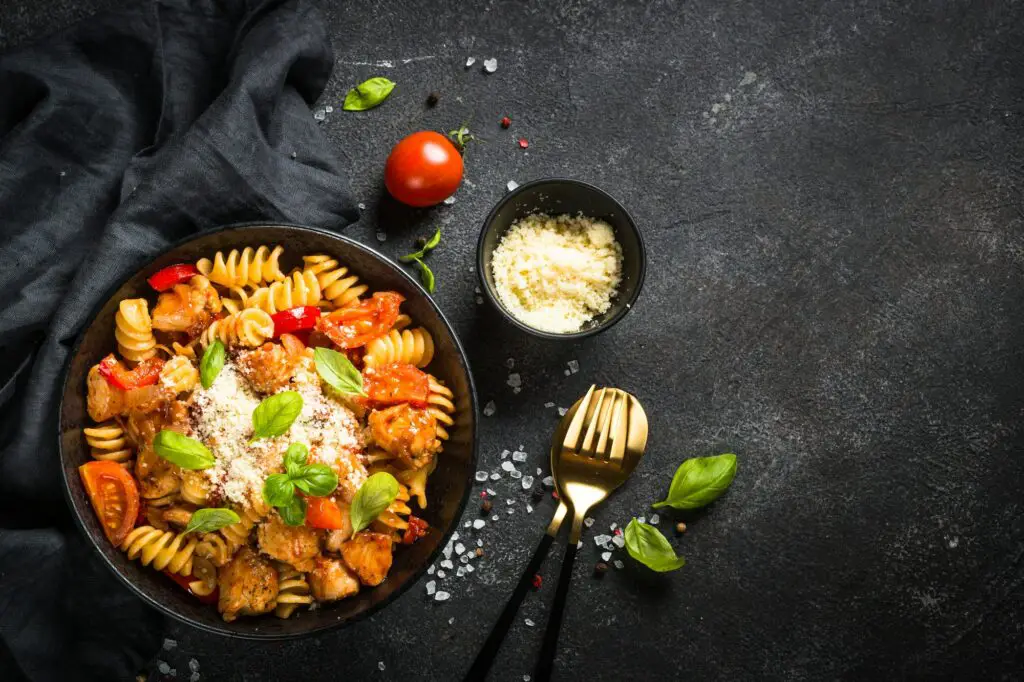
Table of Contents
ToggleConvenience
Cooking pasta in a rice cooker is very convenient. You can simply add the pasta, water, and seasoning to the rice cooker, press a button, and let it do the rest. The rice cooker will automatically shut off when the pasta is cooked, and you don’t have to worry about stirring or watching the pot.
On the other hand, cooking pasta on a stovetop requires more attention and effort. You have to bring a pot of water to a boil, add the pasta, stir occasionally, and then drain it once it’s done. You also have to watch the pot to avoid boiling over and adjust the heat to prevent the pasta from sticking to the bottom of the pot.
Speed
Cooking pasta in a rice cooker is faster than on a stovetop. The rice cooker uses steam and pressure to cook the pasta, which means it can cook the pasta in a shorter time than the stovetop. It usually takes 10-15 minutes to cook pasta in a rice cooker, while on a stovetop, it takes around 20-25 minutes.
Texture
The quality of the pasta is greatly influenced by its texture. Compared to stovetop pasta, rice cooker pasta is typically softer and less chewy. This is so that the pasta won’t become slightly mushy from the rice cooker’s use of steam to cook it. On the other hand, because of the boiling water, stovetop pasta has a tendency to be firmer and chewier.
Versatility
A rice cooker is a versatile kitchen appliance that can be used to cook various types of food, such as rice, quinoa, vegetables, and even cakes. However, it is not specifically designed for cooking pasta, and you may not get the desired texture or consistency.
On the other hand, stovetop pasta can be cooked in different ways, such as al dente, tender, or overcooked, depending on your preference. You can also add different ingredients to the boiling water, such as salt, oil, or herbs, to enhance the flavor of the pasta.
Energy Efficiency
Rice cookers are more energy-efficient than stovetops. Rice cookers use less energy because they only use enough heat to cook the food inside the pot, while stovetops use more energy to heat the entire pot and the surrounding area.
Durability
Rice cookers have a longer lifespan compared to stovetops. Rice cookers are constructed out of durable materials such as stainless steel or non-stick coating, and as a result, they are able to withstand heavy use without exhibiting any signs of wear and tear. They also come with a number of features, such as a timer, a function that keeps food warm, and a digital display, which makes them more flexible and user-friendly.
When it comes to stovetops, on the other hand, wear and tear can occur over time as a result of being subjected to heat and moisture. In addition, they can become scratched or stained, both of which can lower the overall quality of the food that is prepared in them.
Cost
The cost of rice cookers and stovetops varies depending on the brand, model, and features. Generally, rice cookers are more expensive than stovetops. However, if you consider the long-term benefits, such as energy efficiency, durability, and convenience, a rice cooker may be a more cost-effective option.
Cleaning
Cleaning a rice cooker is relatively easy. You can simply wipe the pot with a damp cloth or wash it with soap and water. Some rice cookers also come with a removable pot, which makes cleaning even more convenient.
Cleaning a stovetop, on the other hand, can be more challenging. You have to clean the pot, the burner, and the surrounding area, which can be time-consuming and require more effort.
Taste
The taste of the pasta depends on the quality of the ingredients and the cooking method. Both rice cooker pasta and stovetop pasta can be delicious if cooked properly. However, some people may prefer the taste of stovetop pasta, as it has a firmer texture and absorbs the flavor of the seasoning more effectively.
Nutritional Value
The nutritional value of pasta is highly dependent, both on the type of pasta that is consumed and the ingredients that are used to prepare it. In general, pasta is a good source of carbohydrates and can provide energy when eaten in appropriate amounts. As long as you use the same kind of pasta and seasoning, pasta cooked in a rice cooker and pasta cooked on the stovetop have the same amount of nutritional value.
Safety
Both rice cookers and stovetops can be safe to use if you follow the instructions and use them properly. However, rice cookers have an advantage in terms of safety, as they have an automatic shut-off function that prevents the food from overcooking or burning.
Environmental Impact
Rice cookers are more eco-friendly than stovetops. Rice cookers use less energy, which means they produce fewer greenhouse gas emissions and have a lower impact on the environment. They also use less water, as they cook the food with steam, which means less water is wasted.
Popularity
Rice cooker pasta is becoming more popular among home cooks, as it is convenient, fast, and easy to use. However, stovetop pasta is still the preferred method of cooking pasta for many people, as it allows for more control over the texture and flavor of the pasta.
Conclusion
In conclusion, there are benefits and drawbacks to both stovetop and rice cooker pasta. While quick, simple, and practical, rice cooker pasta may have a softer texture and less flavour control. Contrarily, stovetop pasta requires more work and time to prepare but offers greater flexibility and control over the texture and flavour. The decision between stovetop pasta and rice cooker pasta ultimately comes down to personal preference and cooking method.
FAQs
- Can I cook different types of pasta in a rice cooker?
- Yes, you can cook various types of pasta in a rice cooker, but the cooking time may vary depending on the type of pasta.
- Can I add oil to the rice cooker when cooking pasta?
- Yes, you can add oil to the rice cooker, but it is not necessary.
- How do I cook pasta on a stovetop without it sticking to the pot?
- You can prevent pasta from sticking to the pot by stirring it occasionally and adding salt or oil to the boiling water.
- Can I cook other types of food in a stovetop pot besides pasta?
- Yes, you can cook various types of food in a stovetop pot, such as soup, vegetables, and rice.
- Which method is more energy-efficient?
- Rice cookers are more energy-efficient than stovetops, as they use less energy to cook the food inside the pot.



